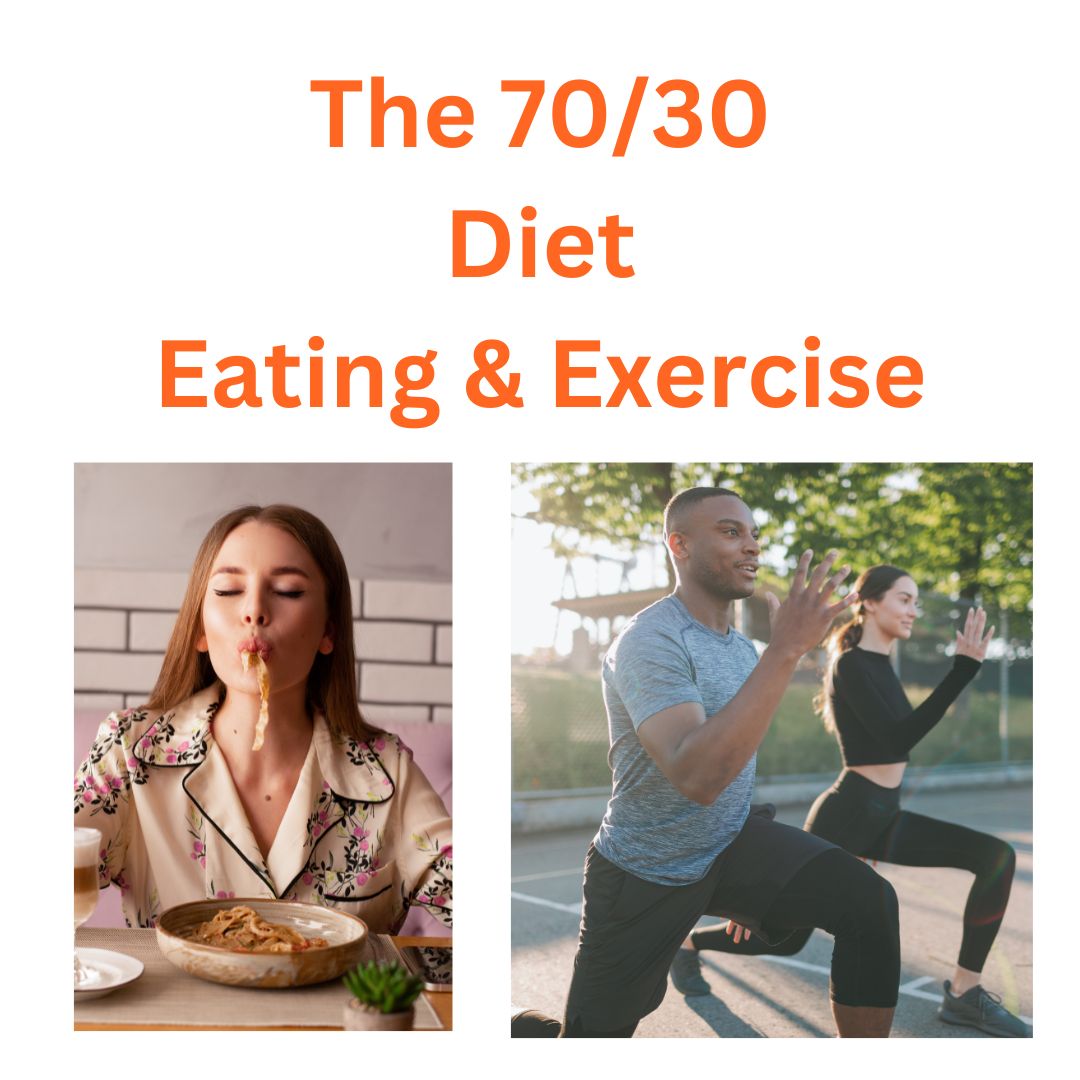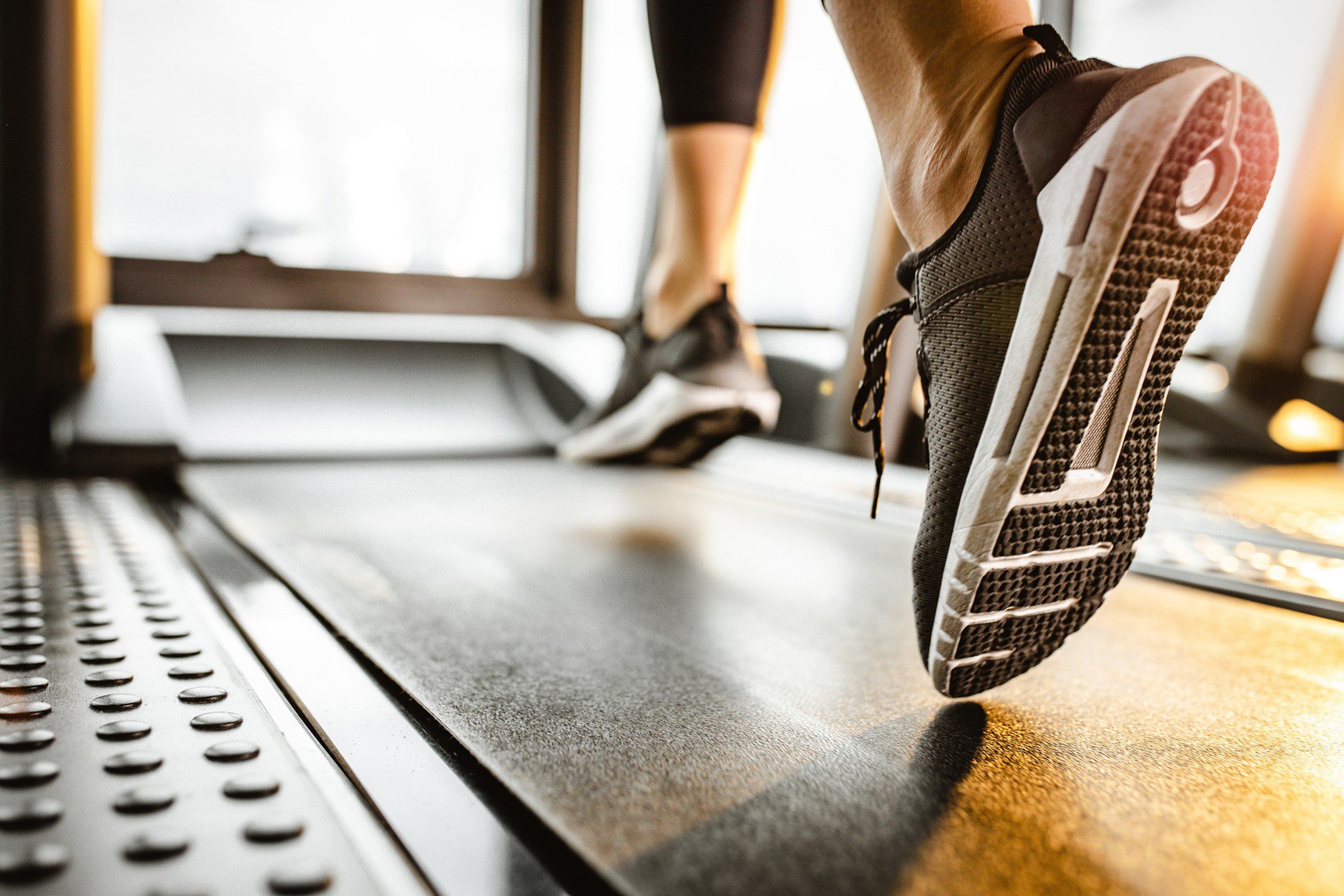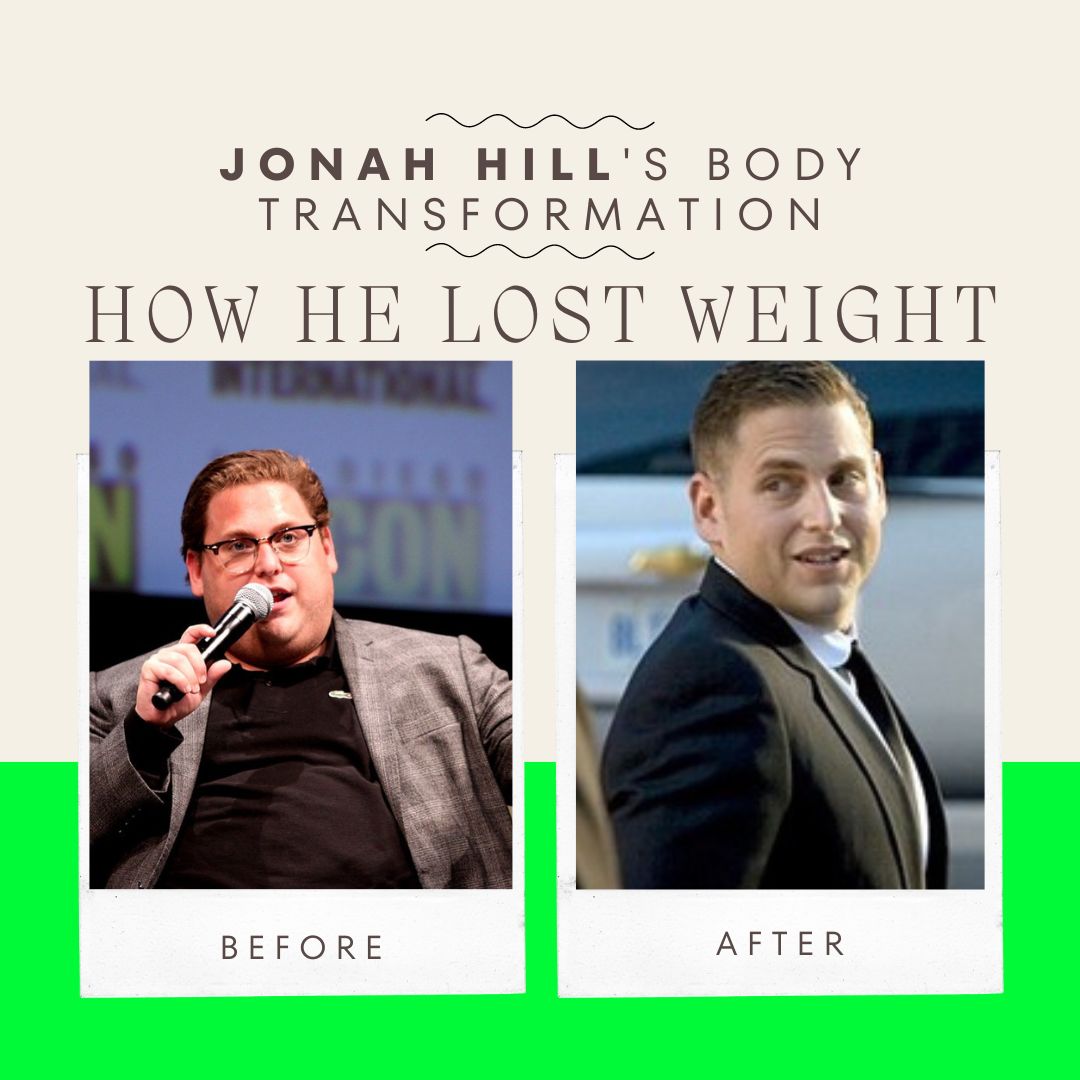


Weight loss is a common goal for many individuals; numerous methods and plans are available to help achieve this. One such plan is the 70/30 diet, which relies on the idea that 70 percent of weight loss comes from what you eat and 30 percent is influenced by exercise.
The 70/30 Diet Concept Explained
The concept behind the 70/30 diet is relatively simple. This plan emphasizes the importance of dietary changes in promoting weight loss.
Specifically, it suggests that an individual’s food choices should comprise around 70 percent of their overall weight loss strategy. The remaining 30 percent should be made up of physical activity and exercise.
This approach recognizes that losing weight requires a calorie deficit – consuming fewer calories than your body burns. However, it also acknowledges two sides to this equation – reducing calorie intake through diet changes and increasing calorie burn through physical activity.
Importance of Diet in Weight Loss
Diet plays a critical role in achieving sustainable weight loss. Research shows that dietary changes substantially impact weight loss more than exercise alone (1).
There are many reasons for this:
- Calorie Intake: Food provides our bodies with energy or calories. Consuming too many calories leads to excess energy storage (i.e., fat) within the body while consuming too few calories results in energy depletion (i.e., muscle breakdown).
- Type of Food: Not all foods are equal regarding digestion, nutrient absorption, and satiety (feeling full). For instance, high-fiber foods tend to increase feelings of fullness and reduce overall calorie intake by slowing down digestion.
- Stress and Emotional Eating: stress and emotions play a significant role in food choices, with studies indicating that individuals often eat more calories when feeling stressed (2).
The Role of Exercise in Weight Loss
While exercise is known to burn calories, its role in weight loss is more complicated than this simple equation suggests. The amount of exercise required to achieve a calorie deficit for weight loss varies based on factors such as body composition, fitness level, and activity type. Additionally, research suggests that focusing on exercise alone may not be enough to promote long-term weight loss (3).
Despite these complexities, physical activity remains essential to any successful weight loss plan. Exercise helps increase muscle mass and reduce fat while improving cardiovascular health and fitness.
It also increases metabolism – the rate at which our bodies burn calories – making it easier to maintain a calorie deficit. While diet and exercise play important roles in achieving sustainable weight loss through the 70/30 diet approach, dietary changes should be prioritized as they have a more significant impact overall.
Understanding the 70% Diet Component
Explanation of how food affects weight loss
It’s a well-known fact that what we eat profoundly impacts our overall health, and this is especially true when it comes to weight loss. The food we consume is directly linked to our ability to lose or gain weight and our overall body composition.
When we consume more calories than our body requires for daily activities, our body stores the excess calories as fat, which leads to weight gain. Conversely, consuming fewer calories than our body needs for energy expenditure creates a calorie deficit leading to weight loss.
Importance of calorie deficit in weight loss
A calorie deficit is at the core of any successful weight loss plan and refers to consuming fewer calories than your body expends through daily activities and exercise. To achieve a sustainable rate of weight loss, it’s recommended that you create a modest daily calorie deficit by reducing your caloric intake by 500-1000 calories per day. This ensures that you lose one or two pounds per week, which is considered safe and realistic.
It’s important to note that drastically reducing your caloric intake can be counterproductive for long-term weight loss goals. Reducing your caloric intake too much too soon can cause your metabolism to slow down and lead to muscle mass loss – both of which make it harder for you to lose fat in the long run.
Types of foods to include in a healthy diet for weight loss
Not all foods are created equal when achieving optimal health and successful weight management. A balanced diet should include protein-rich foods such as lean meats (chicken breast or fish), eggs, legumes (lentils or beans), low-fat dairy products (milk or yogurt), as well as complex carbohydrates like whole grains (brown rice or quinoa), vegetables and fruits.
These nutrient-dense foods contain essential vitamins, minerals, fiber, and antioxidants that help keep our bodies healthy. Limiting your consumption of processed and refined foods such as sugary drinks, white bread, fried foods, candy, or other foods high in added sugars or unhealthy fats is also important.
These types of food are high in calories but low in nutrients – meaning they won’t keep you feeling full for longer and can lead to overeating. Aim for a diet that includes a variety of whole foods rich in nutrients but lower in calories to create a calorie deficit necessary for weight loss while still fueling your body with the nutrition it needs to function optimally.
Meal planning and preparation tips for the 70/30 diet
One way to ensure you consume healthy meals is by meal planning. Take some time each week to plan your meals ahead of time so you can ensure you’re incorporating enough variety into your diet while staying within your caloric goals.
It’s also important to do some meal prep so that healthy meals are readily available when you’re hungry or pressed for time. Meal prep can look different depending on personal preferences but can include things like batch cooking proteins such as grilled chicken breasts or roasted salmon fillets; slicing up veggies like carrots or cucumber sticks; boiling eggs; portioning out healthy snacks like nuts or baby carrots sticks; making smoothie bags with pre-cut fruits and veggies ready for blending.
The importance of hydration in the 70/30 diet plan
Staying hydrated is key when following the 70/30 diet plan because water helps regulate appetite and digestion while preventing dehydration-related symptoms such as headaches or fatigue. Drinking adequate amounts of water daily (most experts recommend at least eight glasses) will also help flush out toxins from your body and keep your skin looking healthy.
Adequate hydration also helps support muscle growth and recovery, which is important when incorporating exercise into your weight loss plan. To stay hydrated throughout the day, carry a reusable water bottle, and refill it frequently.
The 70/30 diet plan emphasizes the importance of diet in successful weight loss. Creating a calorie deficit through balanced meal plans that include nutrient-rich foods like lean proteins, complex carbs, veggies, and fruits is critical.
Staying hydrated is paramount when following a balanced diet for optimal health. Adopting healthy eating habits as a lifestyle change can lead to healthy and sustainable weight loss over time.
The 30% Exercise Component
Regular exercise is an essential component of any weight loss plan. While diet plays a significant role in weight loss, incorporating exercise into your routine can help accelerate the process. Exercise not only burns calories, but it also has many other benefits beyond just helping with weight loss.
Explanation of how exercise influences weight loss
Exercise is a powerful tool when it comes to losing weight. When you exercise, your body burns calories, which can help you to create a calorie deficit and lose weight. But that’s not all – regular exercise can also boost your metabolism, which means you’ll continue to burn calories even after you finish working out.
Another way that exercise influences weight loss is by helping to build and maintain muscle mass. Muscle tissue burns more calories than fat tissue, so having more muscle mass can help to increase your metabolism and burn more calories throughout the day.
Benefits of exercise beyond just burning calories
While burning calories is certainly important for weight loss, there are many other benefits to regular exercise. For example, exercise has been shown to improve cardiovascular health and reduce the risk of chronic diseases such as diabetes and heart disease.
Exercise can also be beneficial for mental health. Many people find regular physical activity helps them manage stress and anxiety and improves their overall mood.
Exercise can be a great way to improve physical performance and function in daily life. Carrying groceries or playing with children may become easier as you become stronger and fitter through regular activity.
Types of exercises to incorporate into a fitness routine
When it comes to choosing exercises for your fitness routine, there are many options available. Cardiovascular exercises like running, cycling or swimming are great for burning calories and improving cardiovascular health.
Strength training exercises such as lifting weights or using resistance bands are important for building muscle mass and improving overall strength. Pilates or yoga can help to improve flexibility and balance.
Choosing exercises you enjoy is important, as this will help you stick to your routine over time. Aim to include a variety of different types of exercises in your routine for maximum benefit.
Creating an exercise plan
Creating an exercise plan that works for you is important to get the most benefit from exercise. Start by setting realistic goals – for example, aiming to exercise for 30 minutes each day.
Consider working with a personal trainer or fitness professional who can help you create a custom workout plan based on your goals and fitness level. Be sure to vary your exercises so you don’t get bored, and always listen to your body – if you’re tired or sore, take a break.
Remember that consistency is key in exercise – aim to make physical activity a regular part of your routine. By doing so, you’ll reap the many benefits of exercise beyond just weight loss.
Combining Diet and Exercise for Optimal Results
How the 70/30 concept works together
The 70/30 diet is all about understanding that a healthy diet contributes to the majority of weight loss while exercise provides a supporting role. Combining the two components is essential for optimal results. When you consume fewer calories than you burn, your body uses stored fat as fuel, resulting in weight loss.
Exercise helps create this calorie deficit and improves muscle strength, endurance, and bone density. Incorporating exercise into your daily routine can help increase your metabolism, allowing you to burn calories even at rest.
Combining it with a healthy diet can lead to significant weight loss over time. The 70% diet and 30% exercise concepts can be applied by adjusting your daily caloric intake from food while incorporating regular physical activity.
Tips for balancing diet and exercise for maximum benefit
Balancing your diet and exercise activities is crucial in achieving maximum benefits in losing weight with the 70/30 plan. Adopting a consistent workout routine and incorporating healthy eating habits are key factors that contribute to successful long-term weight loss. Firstly, you should focus on consuming foods high in fiber, lean protein, healthy fats, and carbohydrates from whole food sources such as fruits, vegetables, and whole grains.
Secondly, tracking caloric intake using methods such as calorie counting apps or a food diary may help keep track of portion sizes consumed throughout the day. For optimal results when exercising with this plan, be sure to find an activity that you enjoy doing which increases heart rate while burning calories; walking or running outside or using gym equipment like elliptical machines are great options..
Common mistakes to avoid when trying to lose weight
One common mistake people make when losing weight is not consuming enough calories. It may seem logical to drastically cut back on food intake, but this can lead to weight gain in the long run.
It’s important to get enough necessary nutrients still – meaning a balance of fats, carbs and protein- to sustain energy levels through diet and exercise. Another mistake is relying too heavily on exercise as the sole method for losing weight instead of incorporating a healthy diet.
Exercise alone cannot make up for poor eating habits, but it can supplement them when used in conjunction with a healthy diet plan. Not getting enough sleep or experiencing stress can also hinder weight loss efforts on the 70/30 plan.
Lack of sleep disrupts hormone regulation that influences appetite and metabolism. High-stress levels can lead to increased cortisol levels which can contribute to weight gain.
Adopting the 70/30 concept effectively achieves sustainable weight loss through balancing your diet and exercise routine for maximum benefit. Incorporating healthy eating habits alongside regular physical activity will inevitably lead to optimal results, while avoiding common mistakes such as not consuming enough calories or relying solely on exercise alone for losing weight will help achieve success.
A) Meal Planning and Preparation Tips for the 70/30 Diet
Creating a Meal Plan for Success
Planning your meals and snacks is essential to the 70/30 diet. Eating a balanced diet that meets your nutritional needs and creates a calorie deficit is important to achieve sustainable weight loss. When creating your meal plan, incorporate plenty of fruits, vegetables, lean proteins, and whole grains.
Batch Cooking and Meal Prep
Batch cooking can save time and make healthy meals easier throughout the week. Consider cooking large batches of grains like rice or quinoa, proteins like chicken or tofu, and roasted vegetables on the weekends to have on hand for quick meals during busy weekdays.
Another helpful strategy is meal prep – prepping individual meals in advance to grab and go when you’re short on time. This can include assembling salads in mason jars or prepping breakfasts like overnight oats.
Mindful Eating
In addition to planning and preparing healthy meals, it’s important to practice mindful eating habits. This includes listening to your body’s hunger cues, eating slowly and savoring each bite, and avoiding distractions like TV or phone screens during meal times.
Tracking Your Progress
Tracking what you eat can help hold you accountable for making healthy daily choices. Apps like MyFitnessPal or Lose It! allow you to log your meals and snacks and track macronutrients like protein, fat, and carbohydrates.
Indulging in Moderation
Remember that no food should be completely off-limits when following a healthy lifestyle – including treats! Allow yourself small indulgences in moderation so that you don’t feel deprived.
B) The Importance of Hydration in the 70/30 Diet Plan
Why Hydration is Essential for Weight Loss
Staying properly hydrated is important for overall health and crucial to successful weight loss. In addition to curbing cravings and increasing energy levels, drinking water can also help boost metabolism and promote feelings of fullness.
How Much Water Do You Need?
The amount of water you should drink daily depends on various factors such as age, gender, activity level, and climate. As a general rule of thumb, drink at least eight 8-ounce glasses of water daily.
Ways to Stay Hydrated
In addition to drinking plain water, there are many other ways to stay hydrated throughout the day. Herbal teas or infused waters can add flavor without added sugars or calories. Fruits and vegetables with high water content, like cucumber or strawberries, can also contribute to your daily hydration needs.
Avoiding Dehydration During Exercise
During exercise, it’s especially important to stay hydrated to avoid dehydration which can lead to fatigue and decreased performance. Make sure to drink plenty of water before, during, and after exercise – especially on hot days or during intense workouts.
C) A List of High-Protein Foods that Can Help with Satiety and Muscle Building During Exercise
The Benefits of Protein for Weight Loss
High-protein foods are an essential component of the 70/30 diet plan as they can help increase feelings of satiety while supporting muscle growth during exercise. In addition, protein requires more energy for the body to digest than carbohydrates or fats – meaning you burn more calories just by eating it!
Protein-Packed Foods
Some examples of high-protein foods that are perfect for incorporating into meals include: – Lean meats like chicken breast or turkey
– Fish like salmon or tuna – Eggs and egg whites
– Greek yogurt – Cottage cheese
– Nuts and seeds – Legumes like lentils or chickpeas
Supplementing with Protein Powder
If you struggle to get enough protein through whole foods, consider adding a protein powder supplement. Whey protein powder is a popular option as it’s a complete protein source and is easily digestible.
Timing Your Protein Intake
In addition to getting enough protein throughout the day, it’s also important to time your intake around exercise for optimal muscle growth. Aim to consume a post-workout snack or meal containing at least 20 grams of protein within 30 minutes of your workout.
Other important weight loss diet considerations
The Role of Sleep in Successful Weight Loss on the 70/30 Plan
When it comes to successful weight loss, sleep often takes a back seat. However, getting enough quality sleep is just as important as maintaining a healthy diet and exercise routine.
Studies have shown that lack of sleep can lead to increased hunger hormones, decreased leptin levels (the hormone responsible for making you feel full), and poor decision-making skills regarding food choices. To ensure that you are getting enough quality sleep while on the 70/30 plan, aim for seven to eight hours of uninterrupted sleep each night.
Create a relaxing bedtime routine that helps you unwind before bed, such as taking a warm bath or reading a book. Avoid caffeine and alcohol before bed, as they can disrupt your sleep patterns.
The Impact of Stress on Weight Loss on the 70/30 Plan
Stress is an inevitable part of life, but it can be particularly challenging when it comes to weight loss. When we experience stress, our bodies release cortisol (the stress hormone), which can lead to increased appetite and cravings for high-calorie foods.
Moreover, chronic stress has been linked to an increased risk of obesity. To manage stress while on the 70/30 plan, it’s important to find healthy coping mechanisms that work for you.
Exercise is great for weight loss and an excellent way to relieve stress. Other relaxation techniques such as meditation or yoga, can also help reduce stress levels.
70/30 diet simply encourages the importance of both diet and exercise
The 70/30 diet concept highlights the importance of both diet and exercise in achieving successful weight loss. By eating a healthy diet that includes plenty of whole foods while incorporating regular exercise into your routine, you are well on your way to achieving your weight loss goals.
Additionally, paying attention to rarely known small details such as sleep and stress management can further enhance your success on the 70/30 plan. Remember that weight loss is a journey, and it’s important to be patient with yourself along the way.
References:
- Cox CE. Role of Physical Activity for Weight Loss and Weight Maintenance. Diabetes Spectr. 2017 Aug;30(3):157-160. doi: 10.2337/ds17-0013. PMID: 28848307; PMCID: PMC5556592.
- Yau YH, Potenza MN. Stress and eating behaviors. Minerva Endocrinol. 2013 Sep;38(3):255-67. PMID: 24126546; PMCID: PMC4214609.
- Thomas DM, Bouchard C, Church T, Slentz C, Kraus WE, Redman LM, Martin CK, Silva AM, Vossen M, Westerterp K, Heymsfield SB. Why do individuals not lose more weight from an exercise intervention at a defined dose? An energy balance analysis. Obes Rev. 2012 Oct;13(10):835-47. doi: 10.1111/j.1467-789X.2012.01012.x. Epub 2012 Jun 11. PMID: 22681398; PMCID: PMC3771367.
our Content Goes Here
Editor's Pick



Weight loss is a common goal for many individuals; numerous methods and plans are available to help achieve this. One such plan is the 70/30 diet, which relies on the idea that 70 percent of weight loss comes from what you eat and 30 percent is influenced by exercise.
The 70/30 Diet Concept Explained
The concept behind the 70/30 diet is relatively simple. This plan emphasizes the importance of dietary changes in promoting weight loss.
Specifically, it suggests that an individual’s food choices should comprise around 70 percent of their overall weight loss strategy. The remaining 30 percent should be made up of physical activity and exercise.
This approach recognizes that losing weight requires a calorie deficit – consuming fewer calories than your body burns. However, it also acknowledges two sides to this equation – reducing calorie intake through diet changes and increasing calorie burn through physical activity.
Importance of Diet in Weight Loss
Diet plays a critical role in achieving sustainable weight loss. Research shows that dietary changes substantially impact weight loss more than exercise alone (1).
There are many reasons for this:
- Calorie Intake: Food provides our bodies with energy or calories. Consuming too many calories leads to excess energy storage (i.e., fat) within the body while consuming too few calories results in energy depletion (i.e., muscle breakdown).
- Type of Food: Not all foods are equal regarding digestion, nutrient absorption, and satiety (feeling full). For instance, high-fiber foods tend to increase feelings of fullness and reduce overall calorie intake by slowing down digestion.
- Stress and Emotional Eating: stress and emotions play a significant role in food choices, with studies indicating that individuals often eat more calories when feeling stressed (2).
The Role of Exercise in Weight Loss
While exercise is known to burn calories, its role in weight loss is more complicated than this simple equation suggests. The amount of exercise required to achieve a calorie deficit for weight loss varies based on factors such as body composition, fitness level, and activity type. Additionally, research suggests that focusing on exercise alone may not be enough to promote long-term weight loss (3).
Despite these complexities, physical activity remains essential to any successful weight loss plan. Exercise helps increase muscle mass and reduce fat while improving cardiovascular health and fitness.
It also increases metabolism – the rate at which our bodies burn calories – making it easier to maintain a calorie deficit. While diet and exercise play important roles in achieving sustainable weight loss through the 70/30 diet approach, dietary changes should be prioritized as they have a more significant impact overall.
Understanding the 70% Diet Component
Explanation of how food affects weight loss
It’s a well-known fact that what we eat profoundly impacts our overall health, and this is especially true when it comes to weight loss. The food we consume is directly linked to our ability to lose or gain weight and our overall body composition.
When we consume more calories than our body requires for daily activities, our body stores the excess calories as fat, which leads to weight gain. Conversely, consuming fewer calories than our body needs for energy expenditure creates a calorie deficit leading to weight loss.
Importance of calorie deficit in weight loss
A calorie deficit is at the core of any successful weight loss plan and refers to consuming fewer calories than your body expends through daily activities and exercise. To achieve a sustainable rate of weight loss, it’s recommended that you create a modest daily calorie deficit by reducing your caloric intake by 500-1000 calories per day. This ensures that you lose one or two pounds per week, which is considered safe and realistic.
It’s important to note that drastically reducing your caloric intake can be counterproductive for long-term weight loss goals. Reducing your caloric intake too much too soon can cause your metabolism to slow down and lead to muscle mass loss – both of which make it harder for you to lose fat in the long run.
Types of foods to include in a healthy diet for weight loss
Not all foods are created equal when achieving optimal health and successful weight management. A balanced diet should include protein-rich foods such as lean meats (chicken breast or fish), eggs, legumes (lentils or beans), low-fat dairy products (milk or yogurt), as well as complex carbohydrates like whole grains (brown rice or quinoa), vegetables and fruits.
These nutrient-dense foods contain essential vitamins, minerals, fiber, and antioxidants that help keep our bodies healthy. Limiting your consumption of processed and refined foods such as sugary drinks, white bread, fried foods, candy, or other foods high in added sugars or unhealthy fats is also important.
These types of food are high in calories but low in nutrients – meaning they won’t keep you feeling full for longer and can lead to overeating. Aim for a diet that includes a variety of whole foods rich in nutrients but lower in calories to create a calorie deficit necessary for weight loss while still fueling your body with the nutrition it needs to function optimally.
Meal planning and preparation tips for the 70/30 diet
One way to ensure you consume healthy meals is by meal planning. Take some time each week to plan your meals ahead of time so you can ensure you’re incorporating enough variety into your diet while staying within your caloric goals.
It’s also important to do some meal prep so that healthy meals are readily available when you’re hungry or pressed for time. Meal prep can look different depending on personal preferences but can include things like batch cooking proteins such as grilled chicken breasts or roasted salmon fillets; slicing up veggies like carrots or cucumber sticks; boiling eggs; portioning out healthy snacks like nuts or baby carrots sticks; making smoothie bags with pre-cut fruits and veggies ready for blending.
The importance of hydration in the 70/30 diet plan
Staying hydrated is key when following the 70/30 diet plan because water helps regulate appetite and digestion while preventing dehydration-related symptoms such as headaches or fatigue. Drinking adequate amounts of water daily (most experts recommend at least eight glasses) will also help flush out toxins from your body and keep your skin looking healthy.
Adequate hydration also helps support muscle growth and recovery, which is important when incorporating exercise into your weight loss plan. To stay hydrated throughout the day, carry a reusable water bottle, and refill it frequently.
The 70/30 diet plan emphasizes the importance of diet in successful weight loss. Creating a calorie deficit through balanced meal plans that include nutrient-rich foods like lean proteins, complex carbs, veggies, and fruits is critical.
Staying hydrated is paramount when following a balanced diet for optimal health. Adopting healthy eating habits as a lifestyle change can lead to healthy and sustainable weight loss over time.
The 30% Exercise Component
Regular exercise is an essential component of any weight loss plan. While diet plays a significant role in weight loss, incorporating exercise into your routine can help accelerate the process. Exercise not only burns calories, but it also has many other benefits beyond just helping with weight loss.
Explanation of how exercise influences weight loss
Exercise is a powerful tool when it comes to losing weight. When you exercise, your body burns calories, which can help you to create a calorie deficit and lose weight. But that’s not all – regular exercise can also boost your metabolism, which means you’ll continue to burn calories even after you finish working out.
Another way that exercise influences weight loss is by helping to build and maintain muscle mass. Muscle tissue burns more calories than fat tissue, so having more muscle mass can help to increase your metabolism and burn more calories throughout the day.
Benefits of exercise beyond just burning calories
While burning calories is certainly important for weight loss, there are many other benefits to regular exercise. For example, exercise has been shown to improve cardiovascular health and reduce the risk of chronic diseases such as diabetes and heart disease.
Exercise can also be beneficial for mental health. Many people find regular physical activity helps them manage stress and anxiety and improves their overall mood.
Exercise can be a great way to improve physical performance and function in daily life. Carrying groceries or playing with children may become easier as you become stronger and fitter through regular activity.
Types of exercises to incorporate into a fitness routine
When it comes to choosing exercises for your fitness routine, there are many options available. Cardiovascular exercises like running, cycling or swimming are great for burning calories and improving cardiovascular health.
Strength training exercises such as lifting weights or using resistance bands are important for building muscle mass and improving overall strength. Pilates or yoga can help to improve flexibility and balance.
Choosing exercises you enjoy is important, as this will help you stick to your routine over time. Aim to include a variety of different types of exercises in your routine for maximum benefit.
Creating an exercise plan
Creating an exercise plan that works for you is important to get the most benefit from exercise. Start by setting realistic goals – for example, aiming to exercise for 30 minutes each day.
Consider working with a personal trainer or fitness professional who can help you create a custom workout plan based on your goals and fitness level. Be sure to vary your exercises so you don’t get bored, and always listen to your body – if you’re tired or sore, take a break.
Remember that consistency is key in exercise – aim to make physical activity a regular part of your routine. By doing so, you’ll reap the many benefits of exercise beyond just weight loss.
Combining Diet and Exercise for Optimal Results
How the 70/30 concept works together
The 70/30 diet is all about understanding that a healthy diet contributes to the majority of weight loss while exercise provides a supporting role. Combining the two components is essential for optimal results. When you consume fewer calories than you burn, your body uses stored fat as fuel, resulting in weight loss.
Exercise helps create this calorie deficit and improves muscle strength, endurance, and bone density. Incorporating exercise into your daily routine can help increase your metabolism, allowing you to burn calories even at rest.
Combining it with a healthy diet can lead to significant weight loss over time. The 70% diet and 30% exercise concepts can be applied by adjusting your daily caloric intake from food while incorporating regular physical activity.
Tips for balancing diet and exercise for maximum benefit
Balancing your diet and exercise activities is crucial in achieving maximum benefits in losing weight with the 70/30 plan. Adopting a consistent workout routine and incorporating healthy eating habits are key factors that contribute to successful long-term weight loss. Firstly, you should focus on consuming foods high in fiber, lean protein, healthy fats, and carbohydrates from whole food sources such as fruits, vegetables, and whole grains.
Secondly, tracking caloric intake using methods such as calorie counting apps or a food diary may help keep track of portion sizes consumed throughout the day. For optimal results when exercising with this plan, be sure to find an activity that you enjoy doing which increases heart rate while burning calories; walking or running outside or using gym equipment like elliptical machines are great options..
Common mistakes to avoid when trying to lose weight
One common mistake people make when losing weight is not consuming enough calories. It may seem logical to drastically cut back on food intake, but this can lead to weight gain in the long run.
It’s important to get enough necessary nutrients still – meaning a balance of fats, carbs and protein- to sustain energy levels through diet and exercise. Another mistake is relying too heavily on exercise as the sole method for losing weight instead of incorporating a healthy diet.
Exercise alone cannot make up for poor eating habits, but it can supplement them when used in conjunction with a healthy diet plan. Not getting enough sleep or experiencing stress can also hinder weight loss efforts on the 70/30 plan.
Lack of sleep disrupts hormone regulation that influences appetite and metabolism. High-stress levels can lead to increased cortisol levels which can contribute to weight gain.
Adopting the 70/30 concept effectively achieves sustainable weight loss through balancing your diet and exercise routine for maximum benefit. Incorporating healthy eating habits alongside regular physical activity will inevitably lead to optimal results, while avoiding common mistakes such as not consuming enough calories or relying solely on exercise alone for losing weight will help achieve success.
A) Meal Planning and Preparation Tips for the 70/30 Diet
Creating a Meal Plan for Success
Planning your meals and snacks is essential to the 70/30 diet. Eating a balanced diet that meets your nutritional needs and creates a calorie deficit is important to achieve sustainable weight loss. When creating your meal plan, incorporate plenty of fruits, vegetables, lean proteins, and whole grains.
Batch Cooking and Meal Prep
Batch cooking can save time and make healthy meals easier throughout the week. Consider cooking large batches of grains like rice or quinoa, proteins like chicken or tofu, and roasted vegetables on the weekends to have on hand for quick meals during busy weekdays.
Another helpful strategy is meal prep – prepping individual meals in advance to grab and go when you’re short on time. This can include assembling salads in mason jars or prepping breakfasts like overnight oats.
Mindful Eating
In addition to planning and preparing healthy meals, it’s important to practice mindful eating habits. This includes listening to your body’s hunger cues, eating slowly and savoring each bite, and avoiding distractions like TV or phone screens during meal times.
Tracking Your Progress
Tracking what you eat can help hold you accountable for making healthy daily choices. Apps like MyFitnessPal or Lose It! allow you to log your meals and snacks and track macronutrients like protein, fat, and carbohydrates.
Indulging in Moderation
Remember that no food should be completely off-limits when following a healthy lifestyle – including treats! Allow yourself small indulgences in moderation so that you don’t feel deprived.
B) The Importance of Hydration in the 70/30 Diet Plan
Why Hydration is Essential for Weight Loss
Staying properly hydrated is important for overall health and crucial to successful weight loss. In addition to curbing cravings and increasing energy levels, drinking water can also help boost metabolism and promote feelings of fullness.
How Much Water Do You Need?
The amount of water you should drink daily depends on various factors such as age, gender, activity level, and climate. As a general rule of thumb, drink at least eight 8-ounce glasses of water daily.
Ways to Stay Hydrated
In addition to drinking plain water, there are many other ways to stay hydrated throughout the day. Herbal teas or infused waters can add flavor without added sugars or calories. Fruits and vegetables with high water content, like cucumber or strawberries, can also contribute to your daily hydration needs.
Avoiding Dehydration During Exercise
During exercise, it’s especially important to stay hydrated to avoid dehydration which can lead to fatigue and decreased performance. Make sure to drink plenty of water before, during, and after exercise – especially on hot days or during intense workouts.
C) A List of High-Protein Foods that Can Help with Satiety and Muscle Building During Exercise
The Benefits of Protein for Weight Loss
High-protein foods are an essential component of the 70/30 diet plan as they can help increase feelings of satiety while supporting muscle growth during exercise. In addition, protein requires more energy for the body to digest than carbohydrates or fats – meaning you burn more calories just by eating it!
Protein-Packed Foods
Some examples of high-protein foods that are perfect for incorporating into meals include: – Lean meats like chicken breast or turkey
– Fish like salmon or tuna – Eggs and egg whites
– Greek yogurt – Cottage cheese
– Nuts and seeds – Legumes like lentils or chickpeas
Supplementing with Protein Powder
If you struggle to get enough protein through whole foods, consider adding a protein powder supplement. Whey protein powder is a popular option as it’s a complete protein source and is easily digestible.
Timing Your Protein Intake
In addition to getting enough protein throughout the day, it’s also important to time your intake around exercise for optimal muscle growth. Aim to consume a post-workout snack or meal containing at least 20 grams of protein within 30 minutes of your workout.
Other important weight loss diet considerations
The Role of Sleep in Successful Weight Loss on the 70/30 Plan
When it comes to successful weight loss, sleep often takes a back seat. However, getting enough quality sleep is just as important as maintaining a healthy diet and exercise routine.
Studies have shown that lack of sleep can lead to increased hunger hormones, decreased leptin levels (the hormone responsible for making you feel full), and poor decision-making skills regarding food choices. To ensure that you are getting enough quality sleep while on the 70/30 plan, aim for seven to eight hours of uninterrupted sleep each night.
Create a relaxing bedtime routine that helps you unwind before bed, such as taking a warm bath or reading a book. Avoid caffeine and alcohol before bed, as they can disrupt your sleep patterns.
The Impact of Stress on Weight Loss on the 70/30 Plan
Stress is an inevitable part of life, but it can be particularly challenging when it comes to weight loss. When we experience stress, our bodies release cortisol (the stress hormone), which can lead to increased appetite and cravings for high-calorie foods.
Moreover, chronic stress has been linked to an increased risk of obesity. To manage stress while on the 70/30 plan, it’s important to find healthy coping mechanisms that work for you.
Exercise is great for weight loss and an excellent way to relieve stress. Other relaxation techniques such as meditation or yoga, can also help reduce stress levels.
70/30 diet simply encourages the importance of both diet and exercise
The 70/30 diet concept highlights the importance of both diet and exercise in achieving successful weight loss. By eating a healthy diet that includes plenty of whole foods while incorporating regular exercise into your routine, you are well on your way to achieving your weight loss goals.
Additionally, paying attention to rarely known small details such as sleep and stress management can further enhance your success on the 70/30 plan. Remember that weight loss is a journey, and it’s important to be patient with yourself along the way.
References:
- Cox CE. Role of Physical Activity for Weight Loss and Weight Maintenance. Diabetes Spectr. 2017 Aug;30(3):157-160. doi: 10.2337/ds17-0013. PMID: 28848307; PMCID: PMC5556592.
- Yau YH, Potenza MN. Stress and eating behaviors. Minerva Endocrinol. 2013 Sep;38(3):255-67. PMID: 24126546; PMCID: PMC4214609.
- Thomas DM, Bouchard C, Church T, Slentz C, Kraus WE, Redman LM, Martin CK, Silva AM, Vossen M, Westerterp K, Heymsfield SB. Why do individuals not lose more weight from an exercise intervention at a defined dose? An energy balance analysis. Obes Rev. 2012 Oct;13(10):835-47. doi: 10.1111/j.1467-789X.2012.01012.x. Epub 2012 Jun 11. PMID: 22681398; PMCID: PMC3771367.
our Content Goes Here








